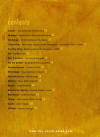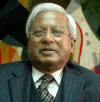|
|
the-south-asian.com August 2007 |
|
|||
|
Famous
Bazaars
Remaining
articles
Books Between
Heaven and Hell
|
|
||||
|
Page
3 of 3 Bangladesh NGOs going global By Akhil Bakshi (cntd) "Poverty is a threat to peaceÖ Ninety four percent of the world income goes to 40 percent of the population. Half of the world population lives on two dollars a day. Over one billion people live on less than a dollar a day. This is no formula for peace." Ė Muhammad Yunus Fazle Hasan Abed, BRACís founder, won the Ramon Magsaysay Award for Community Leadership in 1980BRAC - Building Resources Across Communities (formerly known as the Bangladesh Rural Advancement Committee), was started by Fazle Hasan Abed in 1972 as a small-scale relief and rehabilitation project. It is now one of the largest non-governmental organizations in the world. BRAC is present in all 64 districts of Bangladesh, and reaches an estimated 110 million people over 65,000 villages. In recent years BRAC has extended support to Afghanistan, Sri Lanka and Africa. Its commercial enterprises include a micro-bank, dairy and food project and a chain of retail handicraft stores called ĎAarongí. BRAC has had the biggest impact on child health and education. In 1979, BRAC established the nation-wide Oral Therapy Extension Programme (OTEP), to combat diarrhoea, the leading cause of high child mortality rate in Bangladesh. In just about a decade, 12 million mothers had been taught the preparation of home-made oral saline. The programme brought down child and infant mortality from 285 per thousand to 75 per thousand. In 1985 BRAC started a non formal primary education programme, which provides a five-year primary education course in four years to poor, rural, disadvantaged children and drop-outs who have not had access to formal schooling. These are basically one-room, one-teacher schools for children aged eight and fourteen. The subjects taught are Mathematics, Social Studies and English. "As of June 2006, 31,877 Primary Schools and 16,025 Pre-Primary schools have been established by BRAC enrolling nearly 3 million children, 65% of whom are girls." The schools have a drop-out rate of less than 5%. BRAC has also set up over nine hundred community libraries - 185 of which are equipped with computers. This primary education programme has been replicated in many countries. BRAC commissioned a Dairy and Food project in 1998; launched an Information Technology Institute in 1999; established BRAC University in 2001 with the aim to create future leaders. In 2002 BRAC launched a programme called Challenging the Frontiers of Poverty Reduction specifically for the ultra-poor. BRAC extended its development activities in Afghanistan in 2002 and subsequently, in Sri Lanka, following the devastating Tsunami. In 2006 BRAC launched its programmes in Africa. Recently, the Bill & Melinda Gates Foundation awarded BRAC a grant of over US$ 25.2 million to fund the Manoshi project Ė aimed at reducing maternal, neonatal and child mortality.
BRAC -Afghanistan BRAC registered in Afghanistan in 2002 and covers 24 out of 34 provinces to date. Its major programmes in Afghanistan include Microfinance, Health, Education, National Solidarity and Capacity Development. It has so far initiated 7,235 Village Organisations in Afghanistan, disbursing more than US$ 33 million, established 707 schools enrolling 20,459 students (96.65% girls). It operates 73 fixed clinics and 2,205 Health Posts. Itís Community based health care project provides essential health services door-to-door through health workers. It has also established two Training and Resource Centres in Kabul and Mazar-e-Sharif. BRACís staff in Afghanistan includes 2,519 local and 157 expatriates. {BRAC Afghanistan At a Glance, August 2006} BRAC - Sri Lanka BRAC registered in Sri Lanka in 2005 following the devastating Tsunami and initiated relief and rehabilitation activities. Its rehabilitation and livelihood programmes in Sri Lanka cover 7 districts and 27 divisions. BRACís work in Sri Lanka so far includes the fisheries, agriculture, poultry and livestock, small business, income-generation activities, education and health sectors. It currently employs 161 staff, of whom 144 are local and 116 female. {BRAC At a Glance, June 2006} BRAC - Africa BRAC launched programmes in Africa in early 2006 engaging in development activities in Tanzania and Uganda. It also plans to extend its development activities to Kenya, Nigeria and Southern Sudan in the future. BRACís poverty alleviation strategy in Africa involves an integration of health, water and sanitation components with microfinance schemes. The microfinance programme is already underway with 4,000 beneficiaries in Tanzania and Uganda. Awards Fazle Hasan Abed, BRACís founder, won the Ramon Magsaysay Award for Community Leadership, 1980. He was awarded the United Nations Development Programme Mahbub ul Haq Award, 2004, for his outstanding contribution to human development. In 2004 Bill and Melinda Gates Foundation bestowed upon him
the Award for Global Health.
About the Author Akhil Bakshi A Fellow of Royal Geographical Society, Akhil Bakshi is on the Board of several adventure organisations in India. He has written three books - The Road to Freedom - Travels Through Singapore, Malaysia, Burma and India; Silk Road On Wheels - Travels Through Central Asia, Chinese Turkestan and Tibet; and Between Heaven and Hell - Travels through South Asia. He has written several travel articles for leading newspapers and magazines, and produced over seventy television documentaries.
|
|||||
|
Copyright © 2000 - 2007 [the-south-asian.com]. Intellectual Property. All rights reserved. |
|||||




